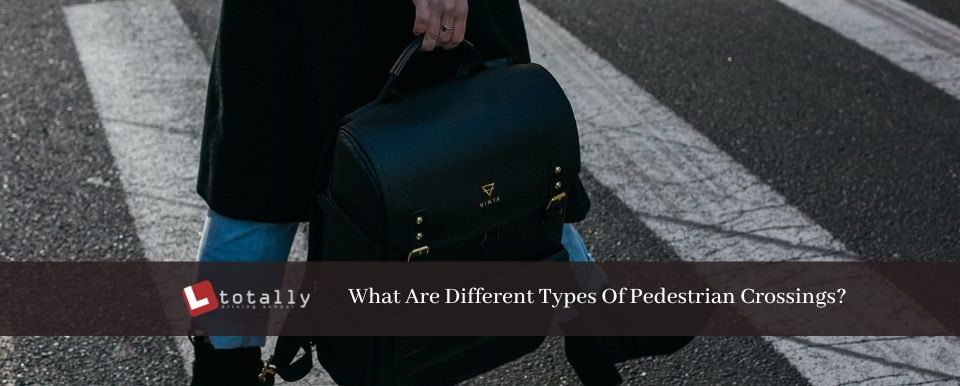VAT & Parking: What You Need To Know

How Many Driving Lessons Do I Need To Pass?
16th April 2025
Help, I’ve Lost My Theory Test Pass Certificate
16th June 2025VAT & Parking: What You Need To Know

Yes, there is VAT on car parking in the UK. Most car parking services are subject to a 20% VAT rate. This article explains how “is there VAT on car parking” applies to various parking scenarios and what consumers and businesses need to know.
Key Takeaways
- Value Added Tax (VAT) on parking services in the UK generally stands at 20%, impacting pricing for both individuals and businesses.
- The responsibility for VAT collection falls to car park operators, and while off-street parking typically incurs VAT, on-street parking managed by local authorities is generally exempt.
- Understanding exceptions and exemptions related to VAT, such as those for disabled drivers or employee parking, is crucial for maximizing potential savings and ensuring compliance.
Understanding Value Added Tax (VAT)
Value Added Tax, commonly known as VAT, is a tax levied on goods and services, including car parking. Acting as a consumption tax, VAT is applied at each stage of production and distribution, effectively making it a tax on consumer spending. In the UK, the standard VAT rate of 20% significantly impacts the cost of various services and products, and businesses must ensure they pay vat to have a valid vat number for compliance.
Businesses that are VAT-registered are required to charge VAT on taxable supplies, which include parking services. These businesses can also reclaim VAT on expenses directly related to their business activities, provided they have the necessary documentation. Individuals or businesses that are not VAT-registered cannot recover VAT paid on parking fees. This also applies to those who use parking for non-business purposes.
The purpose of VAT goes beyond merely collecting revenue; it also helps fund public services. Understanding the scope of VAT and how it applies to different sectors, including parking, is essential for both consumers and businesses to navigate tax regulations effectively.
VAT on Car Parking Explained

Car parking services in the UK are typically subject to VAT at the standard rate of 20%. This means that whenever you pay for parking, a portion of your fee goes towards VAT. Whether it’s off-street parking facilities or car parking facilities, parking meters on the street, the VAT treatment can significantly affect the overall cost. The introduction of VAT can make parking more expensive, impacting both individuals and businesses.
Car park operators, whether private parking companies or local authorities, are responsible for collecting VAT on parking services. This includes the issuance of parking tickets, which must reflect the VAT applied. The VAT treatment may vary when a car park operator makes parking part of a larger service, such as hotel accommodations or event venues, potentially qualifying for reduced rates or exemptions.
Understanding the nuances of VAT on car parking is crucial for anyone who regularly uses parking facilities. It explains why parking fees can be higher in certain areas and helps businesses know when they can reclaim VAT on parking expenses.
Off-Street Parking VAT Application
When it comes to off-street parking, VAT is applicable if the parking is provided by a VAT-registered operator. Typically, off-street parking fees are subject to a 20% VAT rate. This is true whether the parking is offered by a private company or a local authority. The VAT treatment of off-street parking may also vary if it is associated with other services, such as hotel stays, where different VAT rules might apply.
A notable court ruling confirmed that off-street parking is parking subject to VAT, reinforcing the requirement for operators to charge and collect VAT on parking fees. There are some exceptions to this rule. Not all cases follow the same guidelines. For instance, if the operator is not VAT-registered, VAT does not apply to the parking services provided. This distinction is essential for understanding when and why you might see VAT included in your parking fee.
Whether you’re parking in a commercial lot or a private facility, knowing how VAT applies can help you anticipate the full cost and understand the tax implications of your parking choices.
On-Street Parking VAT Rules
On-street parking presents a different scenario when it comes to VAT rules. Generally, on-street parking fees managed by local authorities are not subject to VAT. This is because on-street parking is treated as a non-business activity by HMRC, and the income generated from parking meters is classified as non-business income. Therefore, you typically won’t see VAT added to your on-street parking charges.
However, the situation changes when on-street parking is provided by a private VAT-registered entity. In such cases, VAT is applied to the parking fees. This distinction highlights the importance of understanding who is providing the parking service, as it directly influences whether VAT will be added.
In summary, while local authority-managed on-street parking is generally VAT-exempt, private operators must charge VAT, making it crucial for consumers to be aware of who manages their parking facilities.
Country Park Parking VAT Considerations

Parking in country parks brings another layer of complexity to VAT application. The VAT treatment depends largely on the ownership and management of the park. If a private company owns the country park and charges for parking, VAT is applied at the standard rate of 20%. Conversely, when there is no parking fee in a private country park, it is not considered a taxable supply for VAT.
Public country parks, on the other hand, offer free parking and are generally exempt from VAT charges on free parking. This means that visitors to public country parks and car parks can enjoy parking without the added cost of VAT, making it more affordable.
The differentiation between private sector and public ownership is crucial for understanding why VAT may or may not be applied to parking fees in country parks. Understanding these considerations helps park visitors and managers alike navigate the complexities of VAT and ensure compliance with tax regulations.
VAT on Penalty Charge Notices
Penalty charge notices for parking violations are another area where VAT rules are specific. Generally, these notices are exempt from VAT. Parking fines are considered penalties for breaching parking regulations and do not fall under VAT. This means that no VAT is applied to the fines, and as such, they cannot be reclaimed.
Because no supply is provided in the case of fines, these charges are not subject to VAT. This distinction is important for individuals and businesses to understand, as it clarifies that while parking fees may incur VAT, penalties for violations do not. Knowing this helps in managing expectations and understanding the full cost implications of parking violations.
Excess Charges and VAT
Excess charges for car parking, such as those incurred for extended parking times, may be subject to VAT depending on the circumstances. These car parking charges are typically related to taxable supply, meaning if you exceed your designated parking time, the excess charges will likely include VAT at the standard rate of 20%.
The applicability of VAT on excess charges hinges on whether they are connected to additional parking time or additional services provided. For instance, if you incur extra charges for overstaying in a parking lot, these charges will be subject to VAT. Understanding these nuances helps both consumers and businesses anticipate the full cost of parking and comply with tax regulations.
Factors influencing VAT application on excess parking charges include the nature of the excess charge and its relation to taxable supply. This knowledge is crucial for managing parking expenses and ensuring compliance with VAT rules.
VAT Exemptions and Zero-Rated Parking

VAT exemptions and zero-rated parking scenarios provide relief in certain cases. VAT rates can vary based on the type of goods or services provided, with some items being zero-rated or exempt. For example, parking charges may be zero-rated when associated with goods or services that qualify for VAT relief for disabled persons.
Certain parking services provided specifically for disabled drivers can be parking vat exempt from VAT. Additionally, parking provided exclusively for employees may not incur VAT if offered at no cost or at a reduced rate. Understanding these exemptions helps businesses and individuals navigate the complexities of VAT and take advantage of applicable reliefs.
Exceptions exist where off-street parking services are generally subject to VAT, worth noting the importance of knowing the specific rules that apply to different parking scenarios.
Reclaiming VAT on Parking Expenses
Businesses can recover VAT on parking expenses only if these costs are directly related to business activities. If parking expenses are incurred for both personal and business use, only the business portion of VAT can be reclaimed while claiming expenses. This highlights the importance of accurately documenting and separating business expenses from personal ones.
Proper documentation, including valid VAT invoices, is essential for businesses to reclaim VAT. Consulting with tax professionals can provide guidance on the complexities of VAT regulations, ensuring compliance and accuracy. This step is crucial to avoid costly mistakes and maximise VAT recovery on business expenses related to parking.
By following these guidelines, businesses can navigate the reclaiming process effectively and ensure they are taking full advantage of allowable VAT recoveries.
Importance of Consulting a Tax Professional
Navigating the complexities of VAT, especially in relation to parking, can be challenging. Consulting a tax professional or referring to HMRC guidelines is essential to ensure you have accurate information. Tax professionals can interpret HMRC guidelines correctly, helping you navigate VAT-related inquiries with confidence.
Seeking personalised advice is crucial for understanding the specific VAT implications of various parking services. Professional consultations can clarify the nuanced differences between exempt and taxable parking services, saving you from potential pitfalls.
By consulting experts, both individuals and businesses can avoid costly VAT mistakes and ensure compliance with all relevant tax regulations while seeking professional advice.
Summary
Understanding VAT and its implications on parking is crucial for both individuals and businesses. From off-street parking to penalty charge notices, VAT affects various parking scenarios differently. Knowing when and how VAT is applied can help you manage costs and ensure compliance with tax regulations.
Businesses can benefit from reclaiming VAT on parking expenses, provided they follow the correct documentation and guidelines. Consulting with tax professionals is essential for navigating the complexities of VAT and avoiding costly mistakes.
In conclusion, VAT on parking is a complex but critical aspect of managing parking costs. Stay informed, seek professional advice, and ensure you are compliant with all relevant VAT regulations to optimise your parking expenses.
Frequently Asked Questions
Are all parking fees subject to VAT?
Not all parking fees are subject to VAT; on-street parking managed by local authorities is typically VAT-exempt, whereas off-street parking from VAT-registered entities is usually subject to VAT.
Can businesses reclaim VAT on parking expenses?
Yes, businesses can reclaim VAT on parking expenses if these costs are directly related to business activities and the business is VAT-registered.
Are penalty charge notices subject to VAT?
Penalty charge notices are generally exempt from VAT, as they are classified as penalties rather than a taxable supply. Therefore, VAT does not apply to these charges.
How does VAT apply to excess parking charges?
Excess parking charges are generally subject to VAT at the standard rate of 20% when they pertain to a taxable supply. It is essential to verify the nature of the charges to determine their VAT applicability.
What are some examples of VAT-exempt parking?
VAT-exempt parking includes on-street parking managed by local authorities and parking specifically designated for disabled individuals. These exemptions help ensure accessibility and convenience for those in need.



